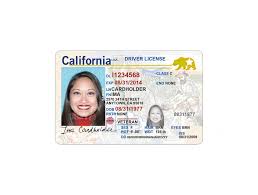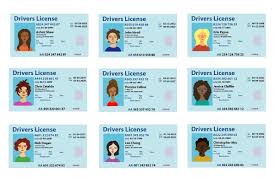Products Description
The Multiple Benefits of Using Scannable ID Cards: A Comprehensive Analysis
In the digital age where technology permeates every aspect of our lives, the adoption of scannable ID cards has become a game changer, offering countless benefits beyond mere convenience. While recognizing the complexities of acquiring, storing, and using scannable ID cards, it is important to delve into the various advantages that make scannable ID cards a vital tool for individuals and organizations. This comprehensive analysis explores the multifaceted benefits of using scannable ID cards, examining their impact on security, efficiency, digital integration, data management, privacy, international travel, transparency, accountability, and customer experience.
1. Enhanced Security and Authentication Mechanisms
Foremost among the advantages of scannable ID cards is their unparalleled security features. Utilizing cutting-edge technologies such as RFID chips, QR codes, and encrypted barcodes, these ID cards are able to quickly and securely verify authenticity. This not only simplifies identity checks, but also significantly reduces the risk of fraud and identity theft. In an age of rampant cybercrime, scannable ID cards add an extra layer of protection, safeguarding personal information from unauthorized access.

2. Accelerated Access and Unparalleled Efficiency
Scannable ID cards have greatly improved the efficiency of access control systems across various departments. From border security to managing access to company premises, these ID cards enable instant verification without manual checks or long queues. This not only improves operational efficiency but also increases customer satisfaction by reducing waiting times. For example, at airports, scannable passports speed up immigration processes, ensuring a seamless traveler experience.
3. Seamless digital integration and convenience
In a world increasingly reliant on digital transformation, scannable ID cards facilitate seamless integration with various online platforms and systems. They can be easily linked to electronic records, allowing individuals to access services, conduct transactions, or prove their identity remotely. This digital integration not only simplifies administrative processes, but also provides users with the convenience of accessing services anytime, anywhere. Governments around the world are adopting digital ID cards stored on smartphones, allowing citizens to conduct transactions and access services without physical documents.
4. Improved data management and tracking capabilities
Scannable ID cards play a key role in enhancing data management and tracking. By storing information electronically, authorities and service providers can retrieve, update, and analyze data in real time, allowing for more effective monitoring of activities such as border movements, tax compliance, and healthcare services. In addition, the use of encrypted data ensures the confidentiality and security of personal information, preventing unauthorized access or misuse.
5. Enhanced Privacy Protection
Contrary to common misconceptions, scannable ID cards offer superior privacy protection compared to traditional identification methods. They employ strong encryption and secure data transfer protocols, minimizing the risk of data breaches. Users have greater control over their personal information, enabling them to selectively share data with authorized parties. This ensures that individuals can protect their privacy while reaping the benefits of digital identification.
6. Simplify International Travel
For frequent travelers, scannable ID cards have revolutionized the travel experience. They eliminate the burden of carrying multiple physical documents by storing important information electronically. This not only reduces luggage weight, but also reduces the risk of losing or forgetting important documents. With biometric scannable ID cards, travelers can easily pass through immigration and customs checks, minimizing waiting time and enhancing the overall travel experience.
7. Promote Transparency and Accountability
Scannable ID cards have greatly improved transparency and accountability across industries. In the corporate world, employee ID cards embedded with RFID chips can track employee movements and attendance, providing managers with real-time insights to monitor productivity and enforce workplace policies. Similarly, in the government sector, scannable ID cards help monitor public services and ensure efficient resource allocation and utilization. This increased visibility and accountability promotes more responsive and efficient systems, benefiting both service providers and end users.
8. Enhanced Customer Experience Across Industries
Scannable ID cards significantly enhance the customer experience in retail, healthcare, and many other industries. By enabling fast and secure identity authentication, they facilitate seamless transactions, faster service delivery, and personalized experiences. In retail, scannable loyalty cards can be linked to customer profiles, allowing retailers to offer tailored promotions and discounts. In healthcare, scannable ID cards streamline the patient registration process, ensure accurate medical record matching, and improve patient care outcomes.
Conclusion
In summary, the use of scannable ID cards, such as New York scannable ID card, Texas fake ID card, US social security number, US fake green card; represents a paradigm shift in identity authentication and management. Their multifaceted benefits, including enhanced security, accelerated access, seamless digital integration, improved data management, enhanced privacy protection, simplified international travel, enhanced transparency and accountability, and enhanced customer experience, make them a valuable tool for individuals and organizations. As we continue to navigate the digital landscape, the adoption of scannable ID cards will undoubtedly play a key role in shaping a safer, more efficient, and more connected future.

Tags:
You like

Fake South Carolina DL

Fake Ohio DL

Fake Washington DL

Fake Pennsylvania DL

